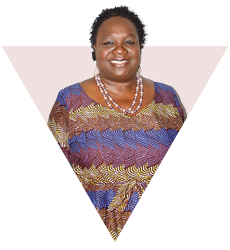TMR was originally developed for advanced prosthetic control, mainly for the upper limb, but also has tremendous post-amputation pain management benefits. Lydia’s sights were set on only getting a prosthetic, but her doctor wanted her to fully understand the benefits of TMR nerve surgery, as well.
Like most patients who first learn about it, she was a little overwhelmed. Add to this that the accident coincided with the early stages of the COVID shutdown. Lydia had to put all her faith in the medical community that was caring for her.
For others who experience amputation, she wants them to know their feelings of loss are very real. When she first came home after losing her hand, she dealt with the sense of not being able to do anything. She says, “You come home and realize, I don’t have a hand. The accident has taken away my independence and self-esteem.”
She credits a local Christian wellness center with helping her navigate the psychological challenges she faced. She couldn't do in-person physical therapy due to the timing of the accident and struggled with the sense of isolation she’d faced as a child. She was alone and embarrassed but had a deep well of resourcefulness she had built as an orphan in West Africa.
Lydia also credits her strength to her commitment to her 19 year-old daughter. For her daughter’s sake, she was unwilling to stay down. She is in the process of launching a nonprofit foundation to help other amputees. A 5K walk and popcorn sale are planned to raise money and awareness. Giving back to society helps her through the tough times and also enables her to spread the word to the families of amputees. “Often people will lose hope because their families abandoned them and they don't realize the resources out there. I want to show that amputees are human beings. I am trying to change the notion that we are limited,” says Lydia.
Today Lydia is back at her auditing position, with hopes of eventually returning to pursuing a baking career.









